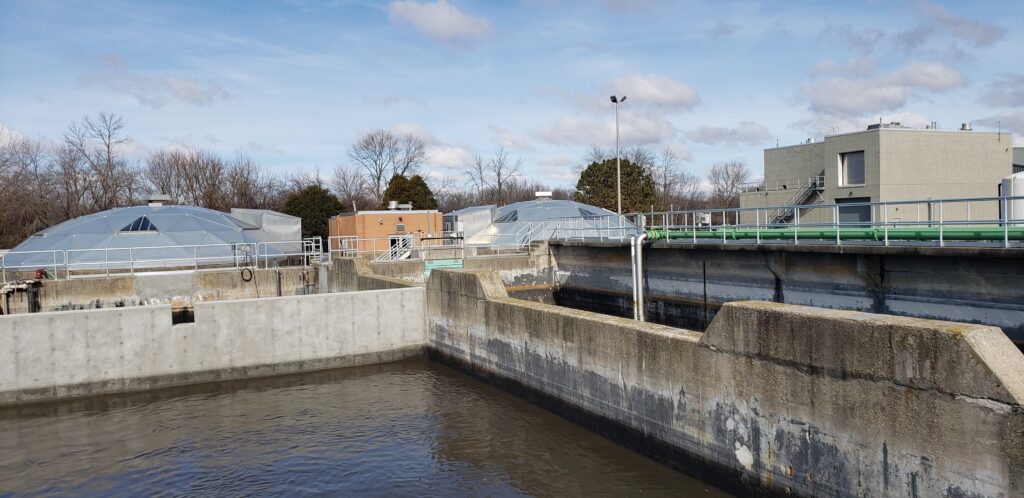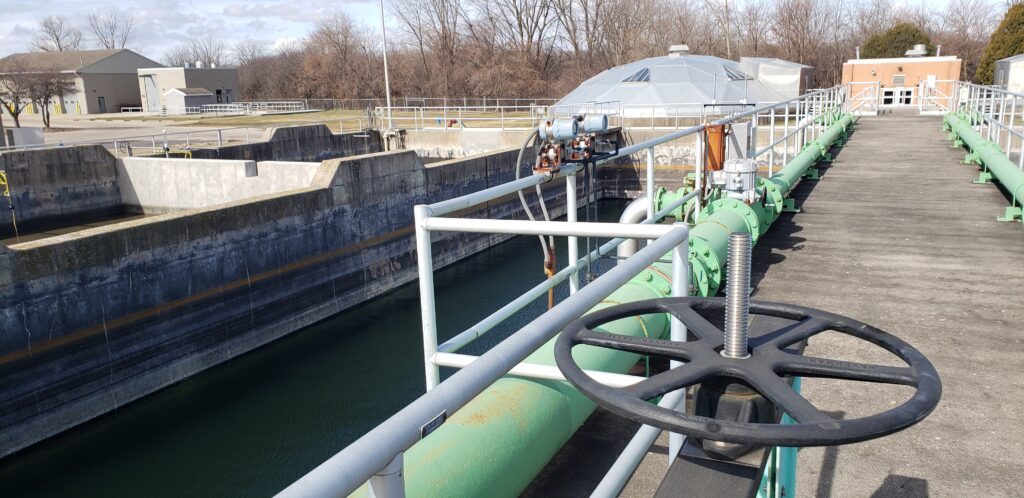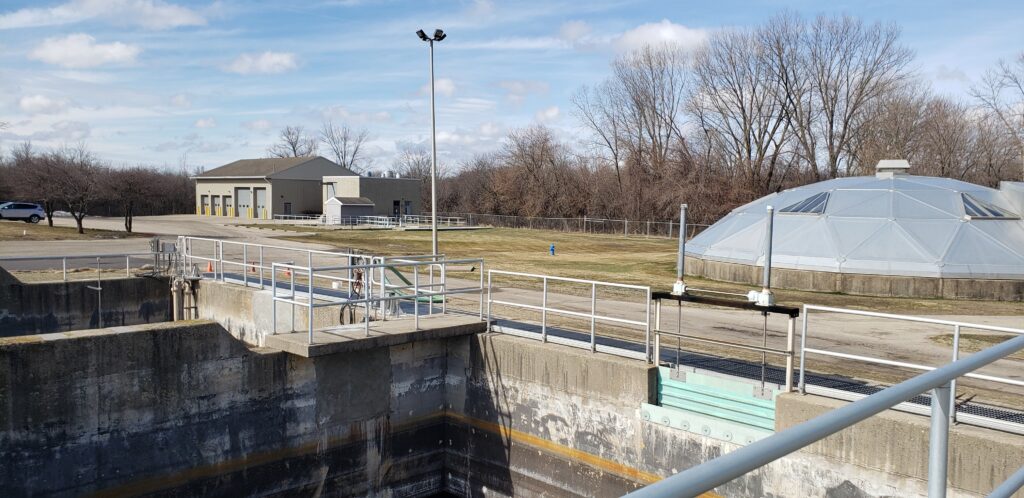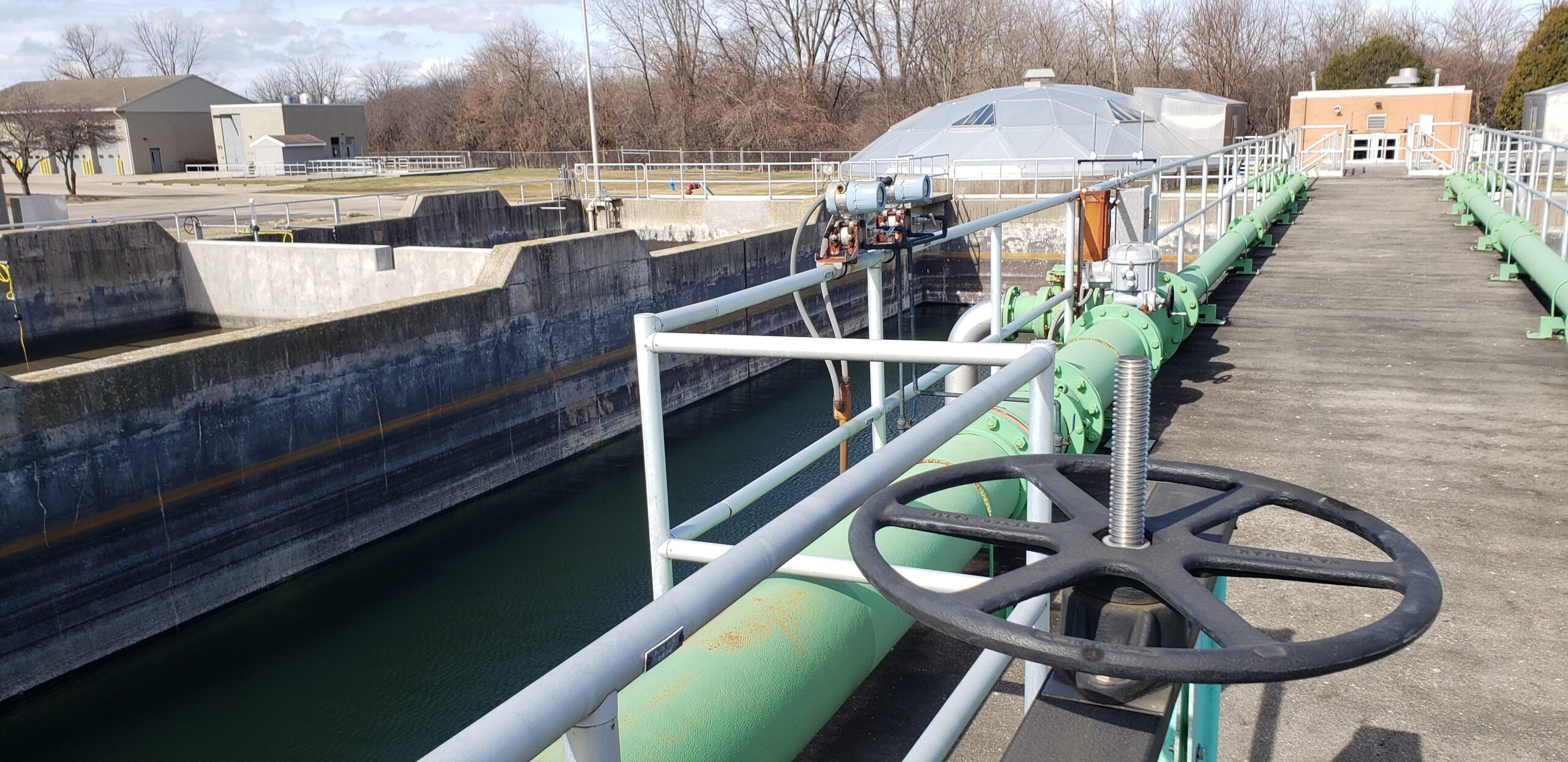By Kim McDarison
The Fort Atkinson City Council approved Tuesday a bid of $13.3 million for the completion of Phase II work on the city’s wastewater treatment plant. The approved bid includes an additional cost of $42,000 for repair work which will be made to the floor in the plant’s primary clarifier.
Council further approved a request made by the engineering firm to authorize the city manager and city engineer to approve change orders independently of council’s approval for work that might be required during Phase II in amounts of up to $10,000, with a cap of $60,000. Once the cap is reached, change orders of any amount would come before council for approval. The request was made to help keep the project on schedule, Wastewater Plant Supervisor Paul Christensen said.
In a separate, but related action, council also approved a $1.1 million construction-related service agreement for work associated with the project.
In a followup interview, Christensen said next steps before construction begins will include the signing of contracts and a pre-construction meeting. He anticipates the project will begin in June and possibly early May, he said.
The Phase II bid
The accepted $13.3 million bid, submitted by Marshfield-based Staab Construction Corporation, was the lowest of three bids received by the city, Christensen said during the council meeting.
The base bid for previously determined Phase II upgrades of $13,343,000 came in below the estimated cost for the work, set by engineers at $15,629,897.50, and represented a $2,287,000 or 14.6% reduction in overall project cost for the city.
The full bid approved Tuesday, including the additional work to the clarifier floor, is set at $13,385,000.
Two other bids, submitted by Fond du Lac-based C. D. Smith Construction and Neenah-based Miron Construction Corporation, came in at $13.6 million and $13.7 million, respectively.
Along with work previously outlined within Phase II upgrades, Christensen said three “alternate items” were included in the bidding documents. If the items were approved by council, he said, the costs to complete them could be added or subtracted from the base bid.
The alternate items included: Alternate 1, an odorous air unit for the influent wet well and screening rooms, coming with an additional cost of $217,000; Alternate 2, repair and grouting made to the floor of the primary clarifier, coming with an additional cost of $42,000; and Alternate 3, using stainless steel for screening equipment, coming with a reduced cost of $60,000.
Christensen said utility staff had reviewed the alternates and recommended the city include the additional cost of $42,000 to repair the primary clarifier floor. Staff was not recommending inclusion of the other two alternates, he said.
He said engineering firm Donohue & Associates had reviewed the bids for conformance and found no errors in the completed bid forms. He further noted that Donohue & Associates Project Engineer Nathan Cassity, who attended the city council meeting on Tuesday, “found the low bidder, Staab Construction Corporation, submitted a responsive bid and is a responsible bidder.”
Revisiting project finances, Christensen said the costs of construction for the wastewater plant’s Phase II upgrades would be paid using a Clean Water Fund loan facilitated through the State of Wisconsin’s Revolving Loan Program.
Last November, the city received notice of an initial loan approval of up to $16 million to finance the project, and the city was approved for loan forgiveness in the amount of $1.75 million.
“Loan forgiveness is a portion of the loan that will not need to be repaid,” Christensen said.
The city also has an available option to use some existing cash from the Wastewater Utility’s reserve and equipment replacement account to pay a portion of the construction and engineering costs, he said.
Phase II $1.1 million construction-related services agreement approved
In a separate action, council approved a construction-related services agreement, which covers auxiliary and other administrative expenses associated with construction-related Phase II project services. The agreement was approved at a cost to the city not to exceed $1,105,515.
In a memo to council, Christensen noted that Donahue & Associates was retained by the city to complete the Utility Facility Plan, the Phase I improvements design and construction-related services agreement, which, he said, are nearly completed, and the Phase II design.
The company was asking council to approve a construction-related services agreement for Phase II work.
He outlined the following Phase II construction work which is anticipated to be completed over the next 27 months, including:
- The replacement of existing raw wastewater grinders with new influent fine screens and wash presses.
- The rehabilitation of the influent wet well.
- The construction of a headworks area to be built over the existing wet well.
- The replacement of two existing influent pumps and the addition of a new fourth pump.
- The rehabilitation of two primary clarifiers.
- The modification of the aerations tanks.
- The replacement of two aeration blowers.
- The rehabilitation of two final clarifiers.
- The construction of a new tertiary filtration facility with chemical conditioning, followed by disc filters.
- Improvements made to the aerobic digesters.
- Improvements made to portions of the HVAC ventilation system within the plant’s Building 10.
Christensen pointed to what he described as a “detailed scope of (construction-related) services,” which includes conformed documents for construction, construction contact execution, pre-construction conference, monthly construction progress meetings, construction contract administration, up to 324 visits to the site and observation of construction, clarification and interpretation of construction documents, change orders, work change directives, cost proposal requests, shop drawing reviews, an evaluation of substitute “or equal” materials and equipment, process application for payment, punch list preparation, review and documentation, startup services which would include vendor-provided training and “O&M” review, and recording of documents and drawings.
Training and manuals will also be provided for the screening and compacting system, the influent pumping system, the secondary treatment system, the tertiary filtration system and the aerobic digestive system.
Looking at costs associated with the Phase II construction-related services agreement (CRS), Christensen said that staff had recently analyzed costs within the first phase of the project for comparison purposes.
The first phase of the project that is nearing completion, Christensen said, cost “just over $1 million,” and its CRS was approved not to exceed 6% of the costs associated with that phase.
He described the first phase of the project as “short” by comparison to work outlined in Phase II, and “much less complicated.”
Looking at other comparisons, he said the “Rockwell Avenue” project was completed at a cost of $4 million and included CRS costs of 6.5% of that contract.
Looking at a project more similar in size to the Phase II wastewater treatment project, he said, in 1991 to 1993, the wastewater treatment plant underwent an upgrade, coming in at a cost of $11.2 million. The project was completed in 730 days and had a CRS that cost the city $1.2 million, representing 11% of the total project cost.
Looking at costs associated with the Phase II upgrades which will soon be under way, he said, the $1.1 million CRS costs represent 8.3% of the construction costs, calculated at $13,385,000. The project is anticipated to take 810 days to complete.
“Utility personnel will assist Donohue & Associates as necessary to control costs. It is not uncommon on a well-run project for CRS costs to be below the ‘not to exceed’ cost,” Christensen wrote in a memo to council.
Some history
Looking at financing, last December, the council approved a three-phased wastewater utility rate increase for the utility’s customers with its first phase effective Jan. 1 of this year. Subsequent rate-increase phases will be put in place in 2022 and 2023. The rates, which are based on flat fees associated with meter sizes, and a usage-based fee, were put in place to help repay the loan for the wastewater plant upgrades.
The facility upgrades were approved by council to meet new protocols put in place by the state in 2019 for removing phosphorous from wastewater. The new protocols must be achieved by June 30, 2023, and the city’s upgrades must be constructed by May of that year.
The loan that is being used by the city to fund the project comes through the Clean Water State Revolving Fund loan. The loan is made available through a partnership with the Wisconsin Department of Natural Resources and the U.S. Environmental Protection Agency and provides low-cost financing for water quality infrastructure projects.

Pictured is a centrate equalization tank at the Fort Atkinson Wastewater Treatment Plant. The tank takes flow (centrate) from the biosolids dewatering system and provides capacity that is pumped back through the plant. The system allows wastewater to be processed more slowly, which, in turn, lessens the impact on the high phosphorus content centrate, Wastewater Plant Supervisor Paul Christensen explained. The improvement was part to the plant’s Phase I upgrades.


Two photos above show the area where new tertiary treatment disc filters will be housed. The improvement will be installed as part of Phase II construction.
Photos by Chris Spangler.
This post has already been read 2171 times!
